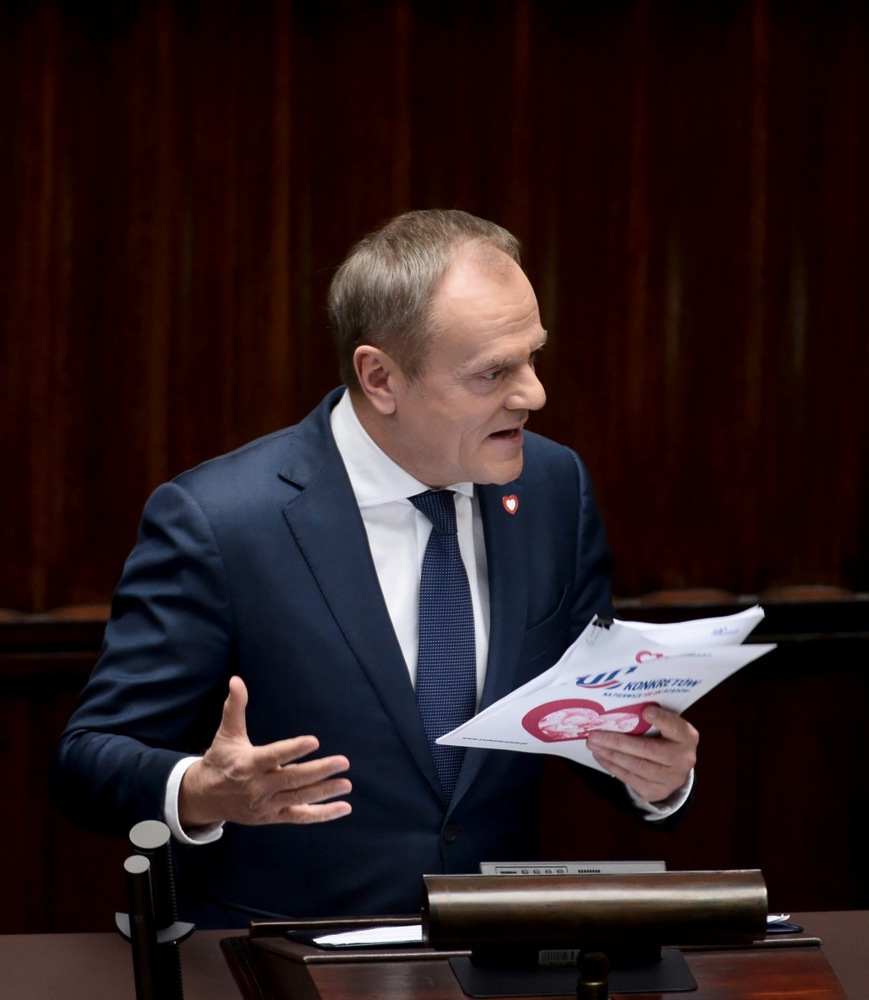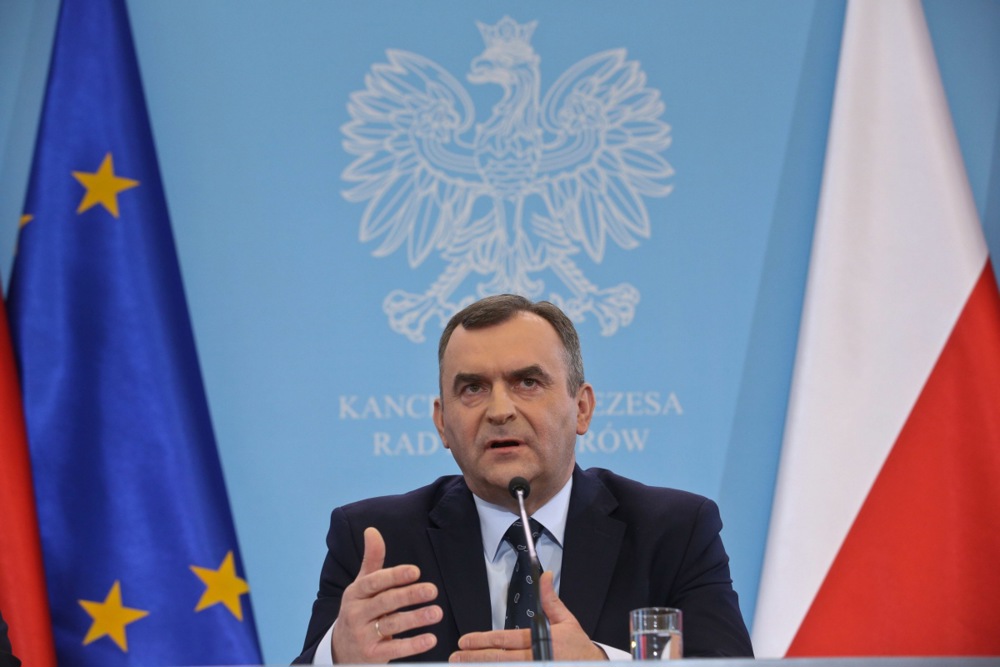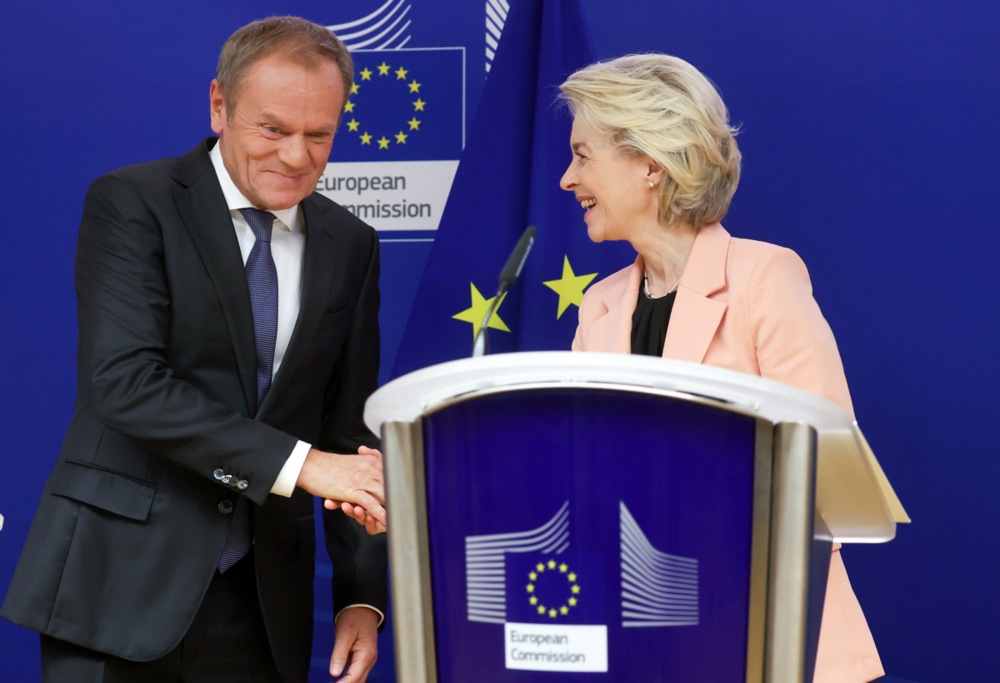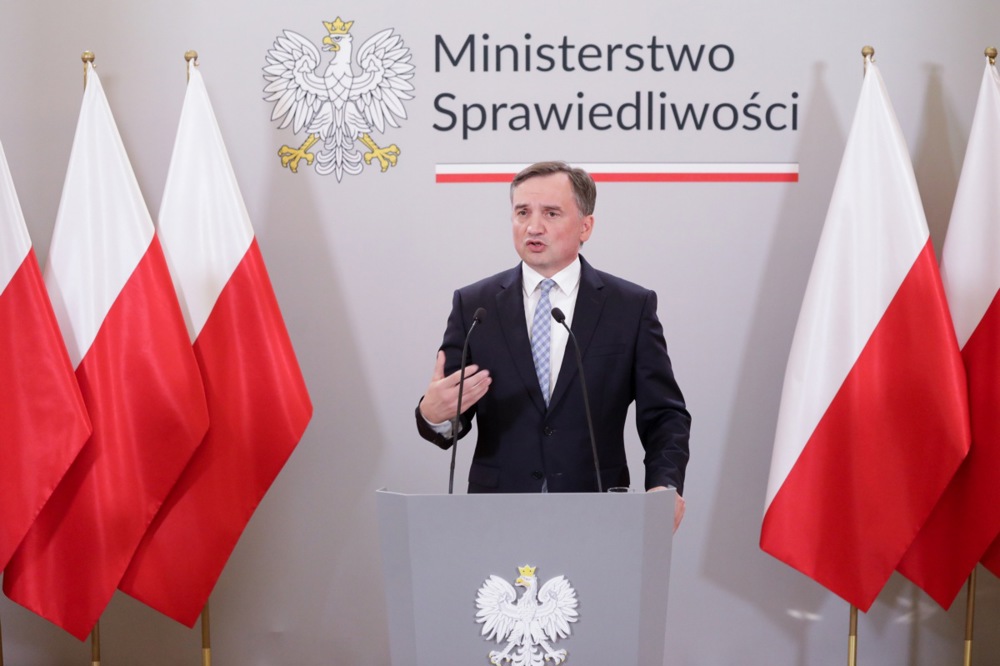*updates with latest developments*
EC President Ursula von der Leyen has confirmed that the Commission is ready to drop conditions it had set the previous Polish Conservative (PiS) government in order to unblock €111 billion of post-pandemic and cohesion funds.
On December 14, Commissioner for Budget and Administration Johannes Hahn told Reuters the EC will “find a way” to make the cash available.
Von der Leyen confirmed this on December 15 when she met new Polish Prime Minister Donald Tusk to sign off on the first tranche of funding from the €59.8 billion post-pandemic and energy transformation funds earmarked for Warsaw.
The EC’s decision also lifts the danger of the so-called “conditionality mechanism” applying to Poland’s cohesion funds worth €51 billion, meaning that €111 billion of the country’s EU funding has effectively been unlocked.
Poland will get an advance payment of EU financial aid worth €5 billion this year. Warsaw has requested another payout of €7 billion on the grounds that Tusk has satisfied von der Leyen that Poland was willing to move on “restoring the rule of law”.
“I welcome your commitment to put the rule of law at the top of your government’s agenda,” she told Tusk.
In accepting what he called a “Christmas gift” from the EC, Tusk said Poland would rebuild democratic institutions and play a more active role in Europe.
“To be continued,” he wrote on social media.
The post-pandemic funds were frozen because the EC had ruled the PiS had not delivered on the targets agreed regarding rule-of-law compliance when in power.
The EC demanded Poland implement all European Court of Justice (ECJ) rulings on Poland’s judicial reforms, such as amending regulations covering the disciplining of judges. On December 11, Poland’s constitutional court deemed these changes unconstitutional.
The Liberal Government led by Donald Tusk signalled Poland’s willingness to accept the ECJ jurisdiction and appoint an interdepartmental working group for “restoring the rule of law”.
According to senior PiS MEP Jacek Saryusz-Wolski, the EC sought a change of government in Warsaw. This, rather than rule-of-law compliance, is the reason for unblocking the money, he claims.
In a post on X titled Rape of Democracy, Saryusz-Wolski said: “In the immediate aftermath of a change of government in Poland the EC has admitted that it illegally blocked EU funds owed to Poland in order to affect the election result.
“This kind of interference in the democratic process is called ‘regime change’.”
The EC fund block was cited by opposition parties during the Polish election campaign as an example of the “failure of the PiS government’s judicial reform and deterioration of relations with European Union institutions”.
The PiS argued that Brussels was withholding the money for political reasons. The executive wanted to use the issue to help Tusk gain power, after which it would unfreeze the funds, it was claimed.
The EC has previously chastised Poland over its judicial reforms, for blocking the relocation of illegal migrants and refugees within the EU, and for resisting the EC’s environmental and climate policies.
Along with the European Parliament, the EC has also criticised Poland for its policies of restricting abortion and for alleged hostility to the LGBT+ community. Both bodies have expressed hope that the new Government in Warsaw will be more accommodating on all these issues.
Tusk’s coalition Government is constrained by the fact that it will have to work with President Andrzej Duda, a PiS supporter who has the power to veto legislation and block judicial and diplomatic appointments.
It will also likely be reined in by the constitutional court, which is packed with judges appointed during the eight years of PiS rule. Separately, the head of Poland’s central bank, Adam Glapinski, is a staunch opponent of Poland entering the European single currency – another thorny issue.
The unblocking of EU funds does give the new Government something positive to present to the people who backed it, and may ease budgetary pressures and boost growth in the longer term.
That could be more significant as the country prepares for local and European parliamentary elections in the first half of next year and a presidential election in the spring of 2025.





